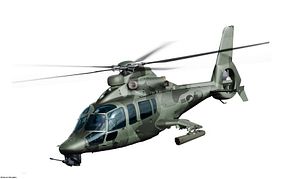Two recent acquisition deals highlight that Seoul is increasingly favoring European over U.S. military hardware Defense News reports.
First, South Korea has decided to go with the bid of European defense contractor Airbus Defense and Space to supply the Republic of Korea Air Force (ROKAF) with four A330 multirole tanker transport (MRTT) aircraft. Airbus beat out U.S. rival Boeing and Israel Aerospace Industries. Among other things, the $1.07 billion contract was awarded to Airbus due to an earlier aircraft delivery schedule, better depot maintenance and a cheaper price tag, largely due to the deprecation of the euro against the dollar.
“The A330 MRTT showed better performances than its rivals in terms of the duration of flight mission in larger areas and amount of refueling, as well as troop- and cargo-carrying capacity,” Kim Si-cheol, spokesman for Seoul’s Defense Acquisition Program Administration (DAPA) told Defense News.
Additionally, he pointed out that the planes will be useful in projecting regional power as well as international operations:
With the deployment of the refueling tankers, our fighter jets could fly up to Pyongyang in case of an emergency. It will enhance our combat readiness and facilitate our peacekeeping operations and emergency relief efforts overseas by enabling long-distance mass supplies.
The decision came a bit as a surprise given that South Korea does not need the extra size and range of the A330 MRTT in comparison to Boeing’s KC-46A, which features lower operating costs. However, Airbus offered to start delivery of the first plane in 2018, whereas Boeing could only commit to a 2019 delivery date.
Yet, as a source told Defense News, the deciding factor was the lower unit price: “Price accounted for only 20 percent of the evaluation, but it was the most important criteria for selecting the winner amid increasing budget pressure.”
Second, South Korea opted for a $ 1.4 billion joint Airbus helicopters/Korea Aerospace Industry program to develop two 5-ton class aircraft: the next-generation Light Civil Helicopter (LCH) and the Light Armed Helicopter (LAH).
Defense News quotes Kim Dae-young, a researcher at the Korea Defense & Security Forum, as noting that Seoul wants to diversify its arms acquisition programs: “In particular, South Koreans want to have more home-built weapons than before, so European firms could have more opportunities to sell their products to Korea, offering more lenient tech transfer than the U.S.”
For example, the ROK Navy is in the process of acquiring nine German Type 214 — designated Son Won-II-class — diesel-electric attack submarines built under license by Hyundai Heavy Industries and Daewoo Shipbuilding & Marine Engineering in South Korea.
Also, a I pointed out in previous piece (see: “Will Corruption Undermine South Korea’s Sub Modernization Program?”), ever since the 1990s, the backbone of the ROK’s submarine fleet has been a fleet of nine 1,200-ton Chang Bogo-class diesel-electric attack submarines – a variant of the German Type 209 Howaldtswerke-Deutsche Werft SS vessel. South Korea plans to upgrade all nine subs with air-independent propulsion and flank-array sonars over the next few years.
Kim also notes that there are very few interoperability issues between U.S. and South Korean weapon systems even if Seoul decides to continue to procure European military hardware in the future, given common technical standards among NATO members.
Despite European defense clout expanding in the country, U.S. defense contractors still dominate the South Korean weapons market. However, European nations will in all likelihood be able to secure a slightly larger market share due to their willingness to more openly share technology and provide better logistical services.
Kim also underlined that Boeing’s recent inability to secure a contract is part of a larger trend in the U.S.-South Korea military alliance:
Boeing was a signature brand of U.S. weapon systems in South Korea, but it’s waning definitely. Boeing has now few products to meet the required operational capability of the South Korean military’s modernization programs, and the merit of the Korea-U.S. alliance is not as strong as before in arms acquisition.

































